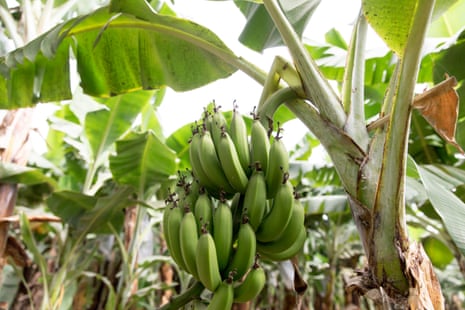Climate Change 2025: The Impact on Agriculture and the Future of Our Food
Climate change is no longer a distant challenge. As we approach 2025, the effects are tangible, especially in agriculture. Staple crops, vital to millions, are already feeling the heat. In this article, we’ll explore how climate change 2025 is reshaping the future of the world’s food and what that means for each of us.

The Accelerating Effects of Climate Change in 2025
Rising temperatures, intense weather patterns, and unpredictable rainfall have become more frequent. In 2025, farmers worldwide are battling circumstances that threaten harvests and livelihoods. Nowhere is this more apparent than in tropical regions where staple crops like bananas are grown. The clock is ticking for sustainable solutions.
Bananas at Risk: A Case Study in Climate Vulnerability
Bananas are more than just a popular snack. Over 400 million people depend on this humble fruit for up to 27% of their daily calories. Yet, the future of bananas is in jeopardy. According to recent research, nearly two-thirds of banana-growing areas in Latin America and the Caribbean may be unsuitable for cultivation by 2080 if action isn’t taken.
Farmers have seen their crops devastated by erratic weather, worsening pests, and new diseases. For example, the spread of black leaf fungus and tropical race 4, both fueled by changing climate, are decimating plantations. These are crops that families rely on, both as food and as a source of income.
Small Farmers Are on the Front Lines
For many, climate change in 2025 is not just a scientific concept. It’s a daily struggle. Banana farmers are battling daily with climate change, facing storms that strip plants of leaves and floods that spread disease. These challenges are especially harsh in communities that contribute little to global emissions but feel the brunt of their impacts.
What Can Be Done?
There are practical steps forward. Reducing emissions is crucial, but adaptation is also key. Supporting diverse crops, buying Fairtrade products, and backing research into climate-resistant varieties can make a significant difference. Wealthier nations must also fulfill commitments to help vulnerable communities adapt to these rapid changes.
Looking Ahead: Our Collective Responsibility
The push for climate action has never been more urgent. Climate change 2025 reminds us that food security, economic stability, and global health are closely connected to the health of our planet. From supporting sustainable agriculture to making informed choices as consumers, our actions now will help safeguard the future of our food.
By understanding the challenges—and acting with purpose—we can build resilience in agriculture and protect essential crops like bananas for generations to come.